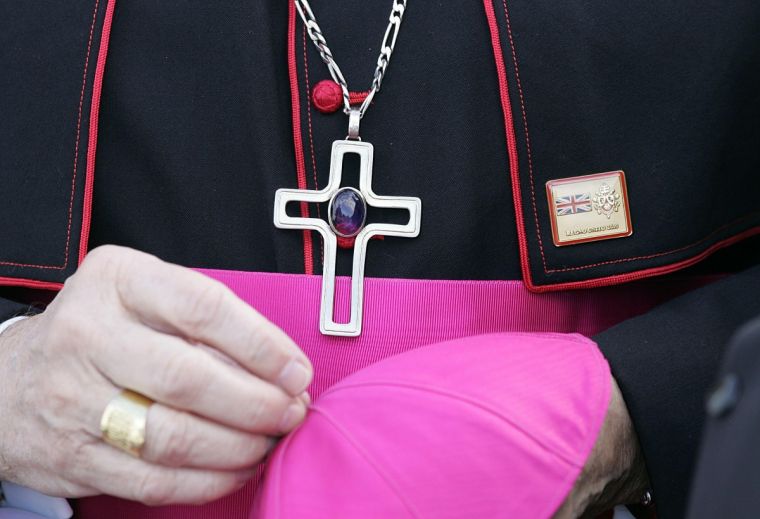Further signs of change in the Catholic Church as conservative US archbishop reveals impending transfer

Change to Catholic pastoral practice on issues such as marriage and divorce inched closer as a leading conservative confessed he is to be ousted from his position as one of the most powerful prelates in the Church.
Cardinal Raymond Burke, the US archbishop who has openly called on Pope Francis to reiterate traditional doctrine in the face of a growing clamour for change, admitted he is to be removed as Prefect of the Supreme Tribunal of the Apostolic Signatura, the Church's highest Canon Law court.
He previously said that the extraordinary synod on the family in Rome seemed designed to "weaken the church's teaching and practice" with the apparent blessing of the Pope.
Cardinal Burke, who as Bishop of St Louis said Holy Communion should be denied to Catholics who voted for pro-choice politicians, and who a few days ago repeated the Catholic teaching that homosexuality is ordered towards an intrinsic moral evil, told BuzzFeed News that the Pope intends to demote him from the church's chief guardian of canon law to a minor post as patron to the Sovereign Military Order of Malta.
"I very much have enjoyed and have been happy to give this service, so it is a disappointment to leave it," said Burke. "On the other hand, in the church as priests, we always have to be ready to accept whatever assignment we're given. And so I trust, by accepting this assignment, I trust that God will bless me, and that's what's in the end most important."
Burke is one of the authors of a book published by several cardinals before the synod condemning the call by liberal Germans such as Cardinal Walter Kasper for more mercy to be shown to Catholics who have had a civil marriage after divorce. Currently they are denied access to the sacrament of Holy Communion, even when they were the innocent party in a divorce.
Burke was also openly critical of the synod's midway document which spoke of "welcoming homosexual persons" as well as hinting strongly at a more liberal position on divorce. The Holy See responded to the controversy by amending the English translation from "welcoming homosexual persons" to "providing for homosexual persons" but in all other languages the document was not altered.
Burke told BuzzFeed he had been told he was to be transferred. But he added: "I've not received an official transfer yet. Obviously, these matters depend on official acts. I mean, I can be told that I'm going to be transferred to a new position but until I have a letter of transfer in my hand it's difficult for me to speak about it. I'm not free to comment on why I think this may be going to happen."
The news emerged as the synod published a "message" in advance of its final document, due in a few hours, that will set out the ground to be covered at the follow-up open synod in October next year.
In the message, the Synod fathers said: "Our dialogue during the Synod has been mutually enriching, helping us to look at the complex situations which face families today."
They continued: "We recognise the great challenge to remain faithful in conjugal love. Enfeebled faith and indifference to true values, individualism, impoverishment of relationships, and stress that excludes reflection leave their mark on family life.
"There are often crises in marriage, often confronted in haste and without the courage to have patience and reflect, to make sacrifices and to forgive one another. Failures give rise to new relationships, new couples, new civil unions, and new marriages, creating family situations which are complex and problematic, where the Christian choice is not obvious."
The cardinals and bishops, reflecting in detail on the financial, social and moral pressures facing the family in today's world, say the high point is the Sunday Eucharist. They say they have reflected "on how to accompany those who have been divorced and remarried and on their participation in the sacraments."
Archbishop Paul-André Durocher told Vatican Radio that he expected the final document to include a reflection on a pastoral approach that includes "the ability to see and develop what is good, even in situations that do not correspond to the ideal of the Church".
Offering single-parent families and divorced and re-married couples as examples, he said: "There is much good going on there and we, as a Church, need to welcome that good and we need to support it."
Archbishop of Westminster Cardinal Vincent Nichols told The Tablet that he could now see a way for divorced and remarried Catholics to receive Communion. He said he could envisage a "demanding penitential pathway" by which this could be achieved, but he could not see how the ban itself could be lifted without changing the Church's doctrine on the indissolubility of marriage.











